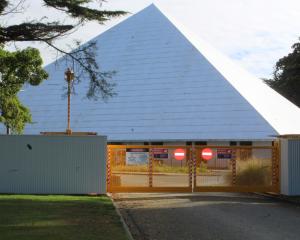A jointly developed management project has successfully shot and removed 432 female deer from Fiordland National Park.
The project, which was implemented by the Department of Conservation, with input from the Game Animal Council (GAC) and Fiordland Wapiti Foundation (FWF), shot and removed the hinds — female deer — from sensitive conservation areas in western Fiordland around Kaikiekie/Bradshaw Sound.
"Begun in February 2022, the operation protected sensitive alpine vegetation and reduced the likelihood of deer incursions into the Murchison Mountains and Secretary Island during a downturn in commercial helicopter hunting," Doc technical adviser George Ledgard said.
The Doc-led operation was additional to commercial helicopter hunting during the 2021-22 season, which had removed 319 deer (male and female) from the management area.
"This means we exceeded what our monitoring data indicated would be required as a minimum to reduce impacts on sensitive alpine species, making the whole project a resounding success from an operational point of view," he said.
"The operation also let us know more about the effectiveness of this type of selective management."
GAC general manager Tim Gale said the operation specifically targeted hinds because, as the breeding animals, they had by far the biggest impact on the future population and in the area were less likely to be shot by hunters.
"This project is another example of positive collaboration between the hunting sector and Doc when it comes to game animal management," he said.
"Well-designed management like this, applied in areas highly valued by hunters, can achieve fewer but better-quality animals in an improved ecosystem which is a better outcome for all."
FWF president Roy Sloan said the operation had supported existing management efforts undertaken by the foundation and provided buffer control at the southern boundary of the Wapiti area.
"As well as the recreational harvest, each year the foundation and its members pay to remove around 900-1200 red and hybrid deer from in and around the Wapiti Area," he said.
"This has reduced impacts on alpine vegetation and improved the quality of the Wapiti hunting.
"I’m also pleased that we can continue to support the local helicopter industry, which has been doing it tough during the pandemic."










